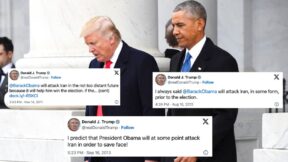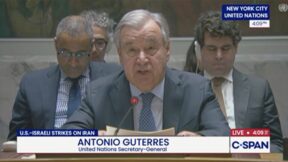Supreme Court Rules In Favor Of Web Designer Who Refuses to Promote Gay Weddings
The Supreme Court ruled 6-3 in favor of a Colorado web designer on Friday who claimed she had a First Amendment right to not create websites for gay marriages despite a state anti-discrimination law.
Justice Neil M. Gorsuch wrote the majority opinion, which split along straight ideological lines on the court, and Justice Sonia Sotomayor wrote the dissent, joined by Justices Elena Kagan and Ketanji Brown Jackson.
“The designer, Lorie Smith, said her Christian faith requires her to turn away customers seeking wedding-related services to celebrate same-sex unions. She added that she intends to post a message saying the company’s policy is a product of her religious convictions,” noted the New York Times on the case. Smith was represented in court by the Christian group Alliance Defending Freedom and her case was based on a hypothetical situation.
The ruling definitively answered a question left open by the court in 2018 when a case regarding a Colorado bakery refusing to make a wedding cake for a gay couple did not result in a concrete opinion as to whether or not private businesses can refuse service to LGBTQ Americans.
“The decision also appeared to suggest that the rights of L.G.B.T.Q. people, including to same-sex marriage, are on more vulnerable legal footing, particularly when they are at odds with claims of religious freedom. At the same time, the ruling limited the ability of the governments to enforce anti-discrimination laws,” noted the Times on the impact of the ruling.
Gorsuch wrote in his opinion “the opportunity to think for ourselves and to express those thoughts freely is among our most cherished liberties and part of what keeps our Republic strong.”
“The First Amendment envisions the United States as a rich and complex place where all persons are free to think and speak as they wish, not as the government demands,” he added.
Justice Sotomayor countered in her dissent, arguing, “Today is a sad day in American constitutional law and in the lives of LGBT people. The Supreme Court of the United States declares that a particular kind of business, though open to the public, has a constitutional right to refuse to serve members of a protected class. The Court does so for the first time in its history.”
“The immediate, symbolic effect of the decision is to mark gays and lesbians for second-class status,” Sotomayor concluded.
This is a developing story and will be updated.
New: The Mediaite One-Sheet "Newsletter of Newsletters"
Your daily summary and analysis of what the many, many media newsletters are saying and reporting. Subscribe now!






Comments
↓ Scroll down for comments ↓